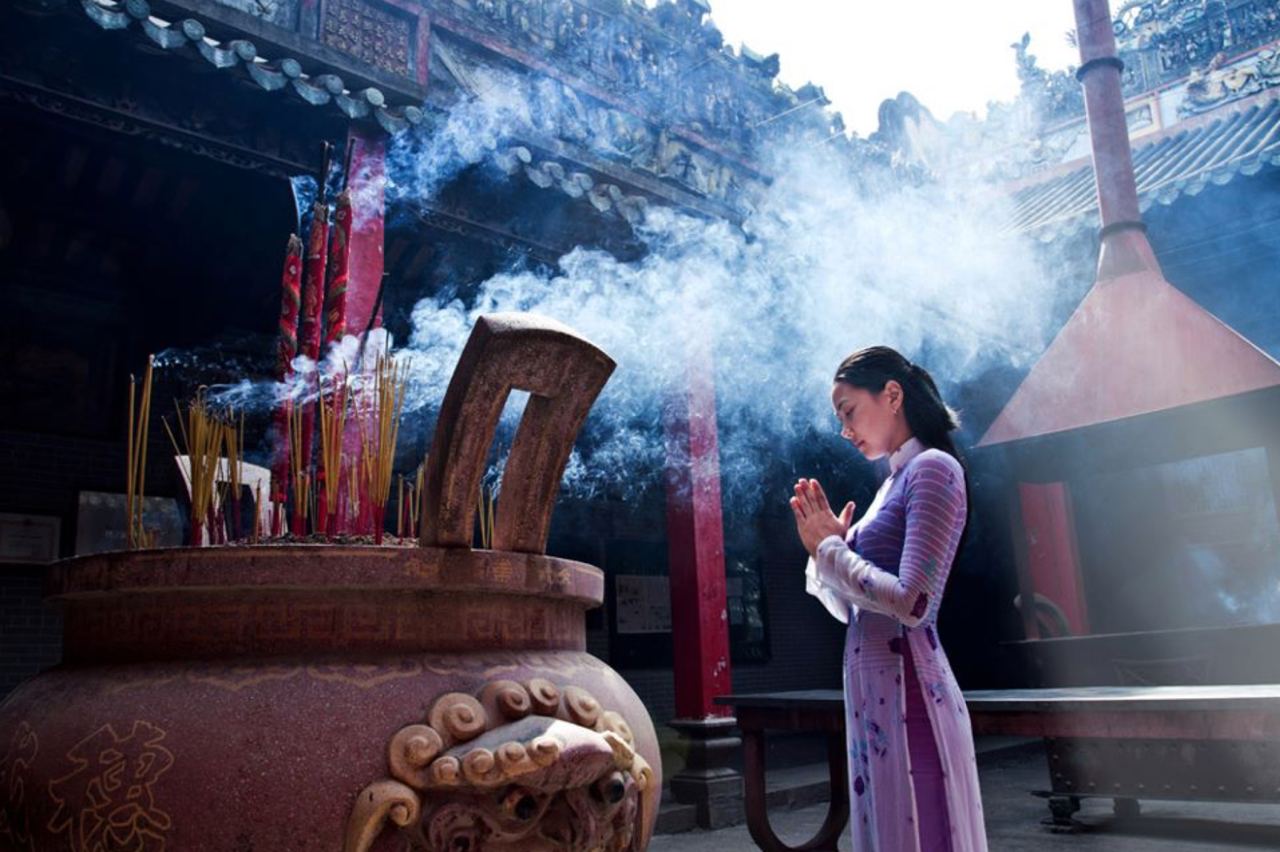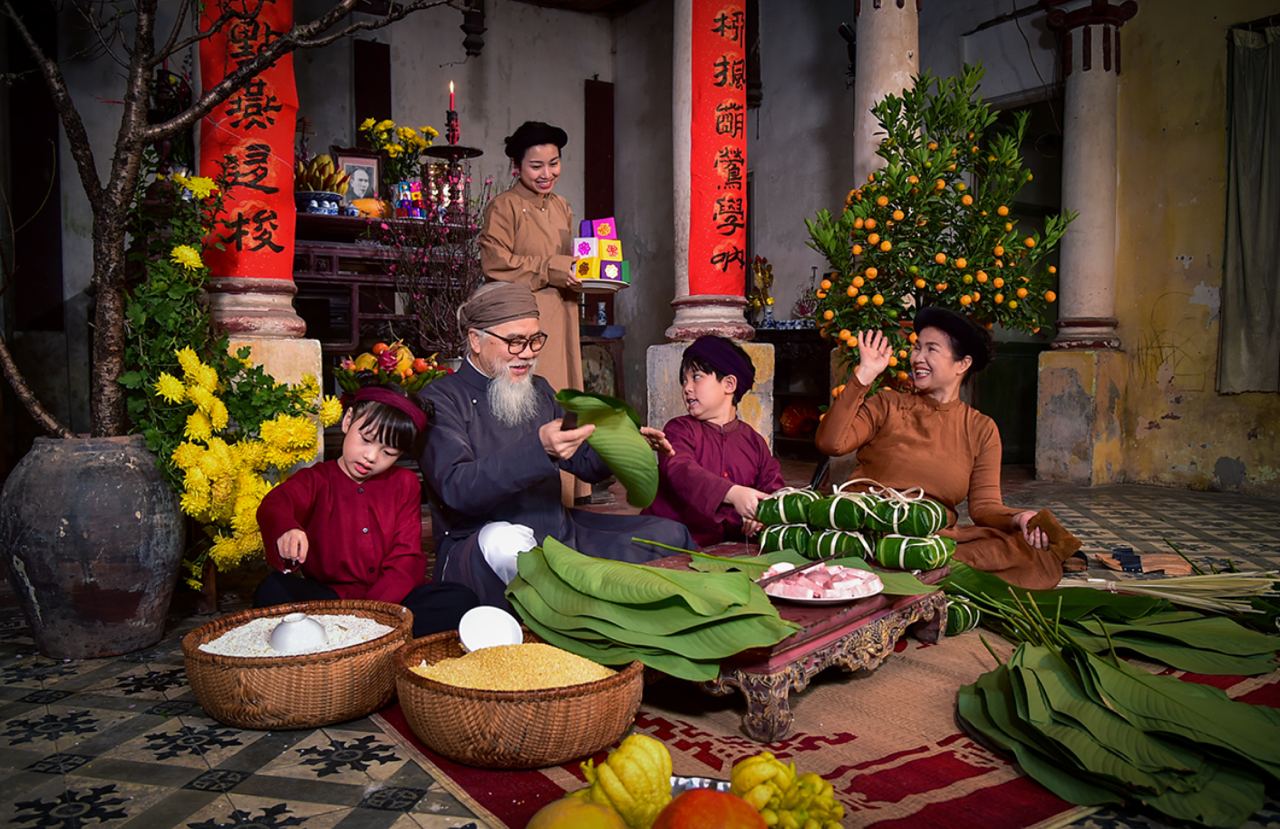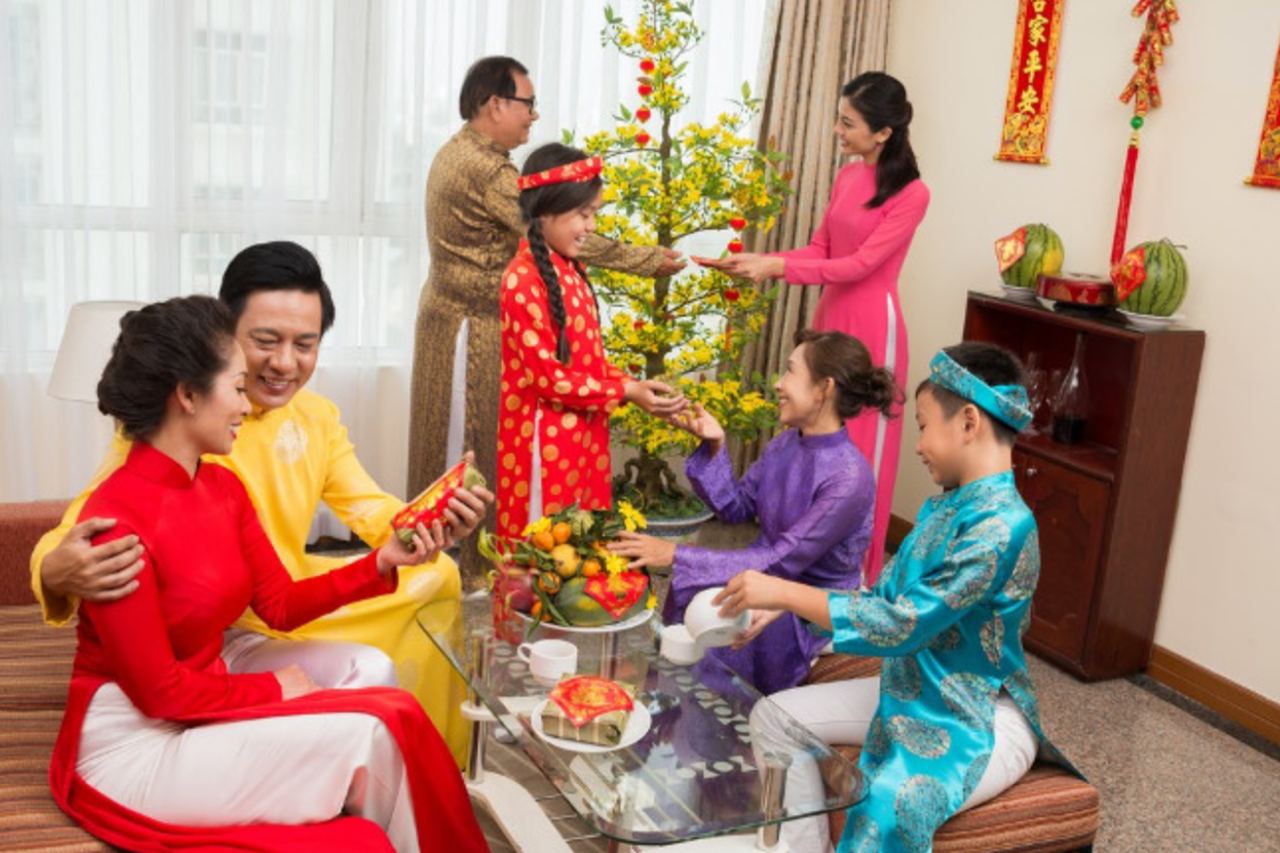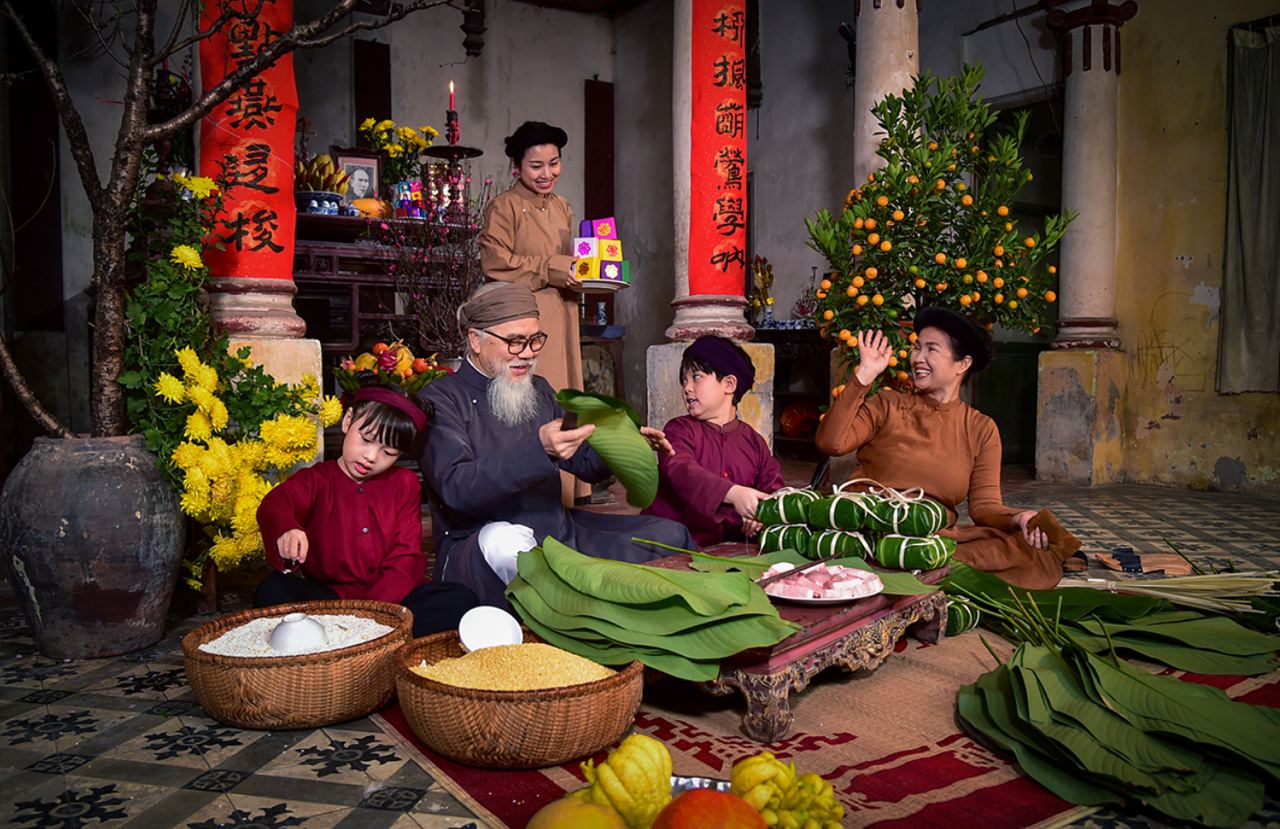The Vietnamese people’s traditional Tet celebration is not complete without New Year’s Eve. It has long since developed into a classic beauty.
Meaning of New Year’s Eve
The night of New Year’s Eve marks the conclusion of the previous year and the start of the new one. On January 1, at 0 hours, 0 minutes, and 0 seconds, the hour of the Rat officially begins. The night of New Year’s Eve, commonly referred to as Death Eve, is significant because it heralds the end of the previous year and the start of the new one.
With each new year, the elderly live longer and younger people mature. The arrival of New Year’s Eve is thought to drive out evil spirits, demons, and all other negative elements from the previous year and usher in luck and success for the following one. This is regarded as a time to unwind and shake things off.

Customs on New Year’s Eve
Ritual offerings to the ancestors on New Year’s Eve
On New Year’s Eve, every family must hold a New Year’s Eve worship ceremony. New Year’s Eve is offered at the correct time, which is 00:00 on January 1 of the year. According to ancient Vietnamese customs, the New Year’s Eve offering table is divided into two trays: one to worship ancestors at the altar in the house and one to worship heaven and earth in the front yard.
Homeowners hold a worshiping ceremony to wish for a good new year by lighting incense outdoors, then praying and lighting it inside to bring good luck. During this ceremony at home, people mention their gratitude to heaven and earth, and their ancestors, apologize to their parents, make peace with each other, let go of bad things, and promise that good things will happen.

Go to pagodas, communal houses, temples
People visit temples, pagodas, temples, and temples after spending New Year’s Eve at home to pray for blessings, and good fortune, and to beg Gods and Buddhas to bless themselves and their family in the next year. At the beginning of the year, hexagrams are frequently requested.
Picking buds
People have the ritual of selecting a tree branch called a lucky branch and placing it in front of the common house or temple door after visiting a pagoda, shrine, or temple in order to “receive the fortune” bestowed by God and Earth. Until it dries, the branch is transported home and set in front of the altar.
Choose departure direction
The homeowner will check the departure date and time-based on their age after making New Year’s Eve offerings. Picking the appropriate date and time to travel in accordance with feng shui will, in accordance with Eastern beliefs, result in a favorable year, good luck at work, and excellent health.
Buy salt at the beginning of the year
Folk often have the saying “Buy salt at the beginning of the year, buy lime at the end of the year”, a custom that has existed for a long time and has been maintained to this day. Termites are considered by elephants to be objects that can ward off evil spirits and ghosts to drive away bad luck and misfortunes, and also have the meaning of connecting family sentiments, so all members are in harmony.
Give someone lucky money
An indispensable traditional custom is celebrating the new year. At this time, adults will congratulate children with red envelopes. The amount of lucky money is not important, the important thing is the meaning of everyone’s wishes. Children and grandchildren wish their grandparents and parents good health and longevity. Grandparents and parents wish their children and grandchildren good health and good study.

